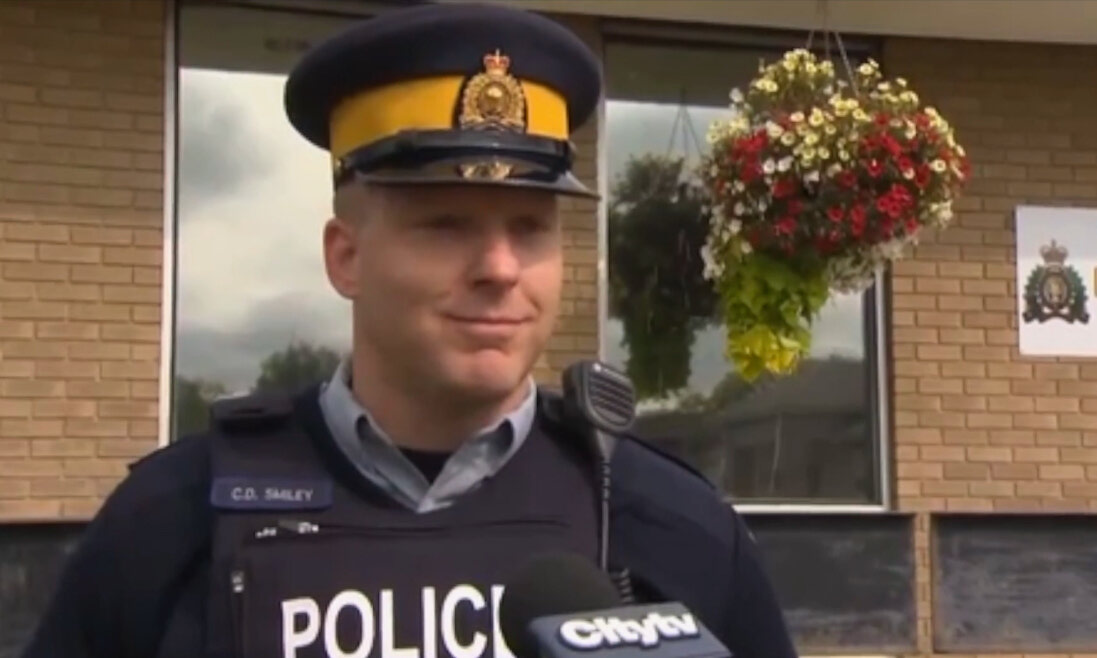Don't Talk to the Media
Every once in a while a story comes along that perfectly illustrates a point I make when I do a media training workshops, either in-person or virtually.
Last week, an Alberta RCMP officer apparently spoke to the media, without permission to do so, and threw gas on an already rapidly burning media firestorm.
Some people should speak to the news media. Others however, should just smile and refer reporters to the people who've been trained as media spokespeople, because the results can cause some real problems.
Throwing Gas on the Fire
Early last week, a short video clip emerged showing the confrontation that had occurred at a Black Lives Matter (BLM) protest in Red Deer a few days before. The video showed protestors being yelled at, bullied and even hit by a group of men, who obviously weren’t pleased with the protest.
On Monday, CityNews Edmonton TV reporter Rachelle Elsiufi questioned the RCMP about the trouble that cancelled the protest and she says she was told there was no investigation into the violence.
Then that CityNews video clip went viral. Thousands of people saw it on social media and it was carried on other TV newscasts. Suddenly the RCMP was telling a different story.
On Tuesday, Red Deer RCMP held a news conference to announce there now was an investigation and defended itself after critics wondered why police didn’t do anything to arrest the male “counter protestors” who bullied and attacked the BLM protestors. The Mounties said they weren’t on the scene yet because the incidents occurred before the protest was scheduled to begin.
Not long after the news conference, Elsiufi interviewed a Ponoka RCMP officer and asked him why police weren’t taking more action against people with connections to hate groups, who roughed up the BLM protestors.
Memories of Vintage Donald Trump
I’m not going to spend the rest of this blog trying to interpret what he said, or meant to say. What was perceived by most people is that his statement was similar to one US President Trump made in the summer of 2017 when he said “You also had people that were very fine people, on both sides” after racial equality demonstrators were attacked by right-wing extremists in Charlottesville, Virginia.
Yes, people on both sides of an issue have an equal right to protest, but nobody has the right to bully, intimidate or assault somebody else.
Let me get to the point I want to make in this blog.
I’m willing to bet the Ponoka Mountie who made the comments is in a lot of trouble for making them to the media. The fact that he did speak to reporter Rachelle Elsiufi on this topic clearly demonstrates once again that there are people who should speak on behalf of their organizations to the media and others who should only suggest the reporter contact the person who has the job of speaking to the media. In other words, every organization needs to have assigned spokespeople and everyone else should be told they are not allowed to speak to the media.
It only took the officer five seconds to say something controversial that put the RCMP on the defensive.
Media Communication Policy
I’ve been doing media training for around 12 years and I don’t think I’ve ever done a workshop in which I didn’t tell the group that hired me about the need for a written media communications policy.
It basically says five things:
- Who the main media spokesperson is
- Who the back-ups are
- Who does not speak to the media (everyone else)
- Media spokespeople still need rules to follow
- Anyone speaking to the media needs training
I would bet my bottom dollar that the RCMP has a written media communications policy, that most likely is a lot longer than the five rules I’ve listed above. My educated guess is that the Ponoka Mountie broke rule number 3 and he’ll face the consequences.
Having a media communications policy is not a guarantee that somebody isn’t going to speak out of turn, but it sure helps. When that happens, an organization can point to the policy and ask the person why they violated it.
People who haven’t been trained to speak to the media are the ones who the media wants to talk to the most. I know when I worked as a reporter and something happened at a certain location, it was the people who worked in the field that I wanted to talk to because the chances of them saying something they shouldn’t, or something really interesting were far higher than by interviewing the official corporate spokesperson.
It hasn’t changed in the many years since I carried a big cassette recorder and a microphone.
Let’s face it. The media work done by the RCMP in the last couple of years hasn’t exactly been stellar, but at least the Mounties have been able to avoid stepping on political or social landmines.
Until now.
Photo and video credit: CityTV News
This is Your Last Chance
My virtual media training workshop takes place this Wednesday at 9:00am. There's still time to register, learn, and download a ton of takeaway material. Find out how to speak to the news media from your home or office.


Commentary